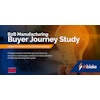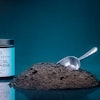YONKERS, N.Y. (PRNewswire-USNewswire) — Buying store-brand foods can save Americans money at the supermarket, and more often than not they'll get products that are at least of the same quality as the national brand alternative, according to a new Consumer Reports study. CR's expert taste-testers judged 33 of 57 store-brand foods to be as good as or better than the big name brand.
In categories such as ice cream, trail mix, mozzarella, mixed vegetables, and more, Consumer Reports found at least one store brand from the national grocers Costco, Kmart, Sam's Club, Target, Trader Joe's, Walmart, and Whole Foods that was equal in quality to the national brand. For example, CR's expert testers found that Market Pantry (Target) ketchup was just as good as popular name-brand Heinz.
"We found that not only are store-brand foods often much cheaper, but in nearly 60 percent of the comparisons we did our experts found them to be at least as good as the national brand," said Tod Marks, senior project editor, Consumer Reports. "We recommend that consumers take advantage of the lower prices. After all, if they're not satisfied with the store brand, most supermarket chains will refund their money."
The full report can be found online at ConsumerReport.org and in the October issue of Consumer Reports magazine, which hits newsstand this Thursday August 29.
Store brands account for about one of every four products in a supermarket – and they're branching into niches that lack national-brand competition, Consumer Reports notes. Their growing popularity might well be economic. Some of the store brands tested by CR were more than 30 percent cheaper.
Consumer Reports also found that Costco, Sam's Club, Target or Walmart were among the low-price winners in every category. However, store brands aren't always a bargain. Trader Joe's and Whole Foods usually contended for the most-expensive store brand. In fact, five of the 10 tested Whole Foods products actually cost more than the national brand.
Consumer Reports is the world's largest independent product-testing organization. Using its more than 50 labs, auto test center, and survey research center, the nonprofit rates thousands of products and services annually. Founded in 1936, Consumer Reports has over 8 million subscribers to its magazine, Website and other publications. Its advocacy division, Consumers Union, works for health reform, food and product safety, financial reform, and other consumer issues in Washington, D.C., the states, and in the marketplace.






















